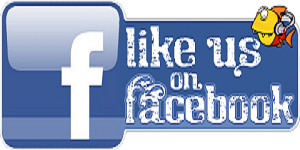This is a weekly post by Nidhal Guessoum (see his earlier posts here). Nidhal is an astrophysicist and Professor of Physics at American University of Sharjah and is the author of Islam's Quantum Question: Reconciling Muslim Tradition and Modern Science.
Gulf News published an Op-Ed by me this past Friday. They didn’t change the title I had given it: “Is Science nearing its end?” Originally, I wanted to review the recent book by Russell Stannard, “The End of Discovery”, which is subtitled "Are we approaching the boundaries of the knowable?" But Gulf News was not interested, for several reasons, one being that the book is more than 6 months old, and another being that they tend to publish reviews of mainly socio-political books or biographies. So I suggested that I write an Op-Ed commentary on the question of whether scientific knowledge is closing down, arguing that this is an important issue to consider.
And indeed, they invited me to write such a... piece, which they immediately loved and published the very next Friday (when such Perspectives articles are run), without changing its title, and with almost no modification whatsoever. Interestingly, it seems to have received quite a number of hits, judging by the number of “Like”, “Share”, and even “Tweet”.
I will paste the first few paragraphs below.
I also would like to draw your attention to a long (4,000-word) article on Islam and Science that was published yesterday (June 19) in the Chronicle of Higher Education. It is by Steve Paulson (you may recall my brief presentation of his recent book “Atoms and Eden” a few months ago); the piece is titled: “Does Islam Stand Against Science?” I have only browsed through it quickly. I will probably come back and discuss it more attentively sometime soon. For now, I want to note that both Salman and I are quoted repeatedly therein…
Here are the first few paragraphs from “Is Science nearing its end?”
Fifteen years ago, American science writer and commentator John Horgan rocked the scientific community with a book titled The end of Science. In it he argued that while the early 20th century had witnessed major scientific revolutions and paradigm shifts, the past 50 years were sterile. According to him, humans had, for all intents and purposes, uncovered the fundamental laws of nature, and should now only seek good practical applications.
A few years before that, American Nobel prizewinning physicist Steven Weinberg published Dreams of a Final Theory, claiming that scientists were nearing the construction of a unified theory of nature — hence that there will soon be little left to find, at least in physics (the most fundamental of sciences).
And last October, Russell Stannard, Emeritus professor of the UK's Open University, published The End of Discovery, asking, "Are we approaching the boundaries of the knowable?"
Intuitively, people tend to think that knowledge is boundless, that the universe's phenomena are infinitely varied and layered, and that there will always be things to discover and understand. As the Quran puts it beautifully: "And if every tree on earth were made into pens, and the sea to supply it with ink, with seven more seas to add, God's words would not be exhausted…" (31:27)
So why do such highly intelligent and knowledgeable thinkers believe that science is coming to an end? Are there no more great questions to answer?
You can read the rest here











Δεν υπάρχουν σχόλια:
Δημοσίευση σχολίου
Εκφραστείτε ελεύθερα, πείτε ότι θέλετε αλλα μην βρίζετε χυδαία για να μην μπαίνουμε σε διαδικασία να σβήνουμε σχόλια, κάτι που δεν το θέλουμε!
Ευχαριστούμε...